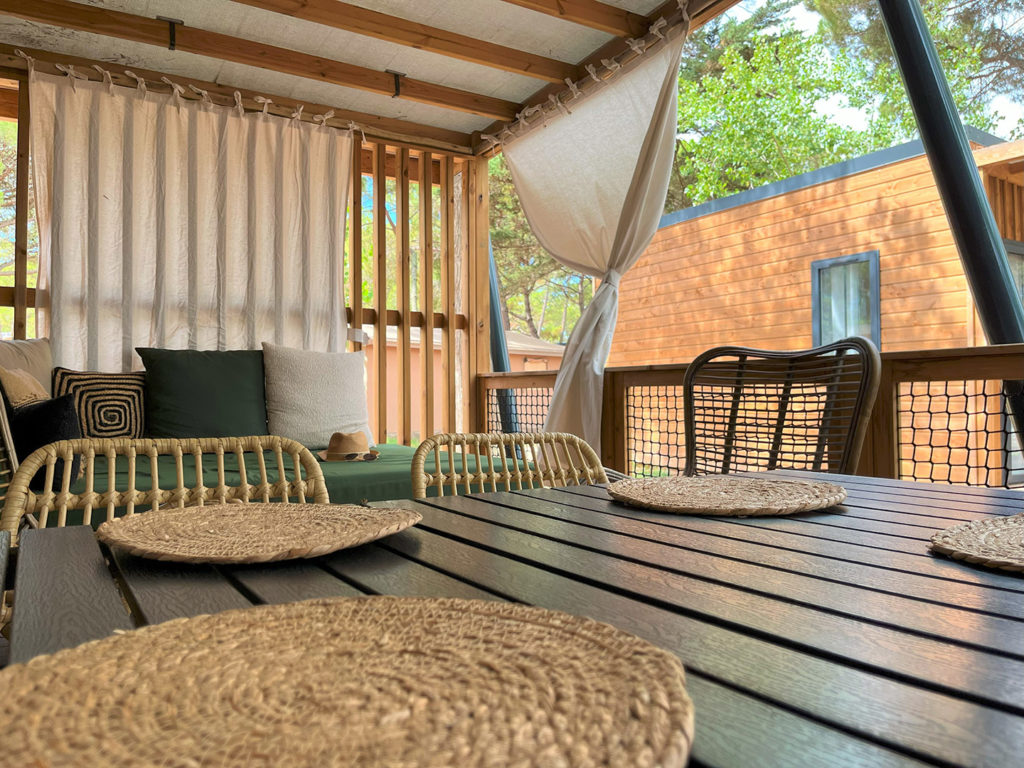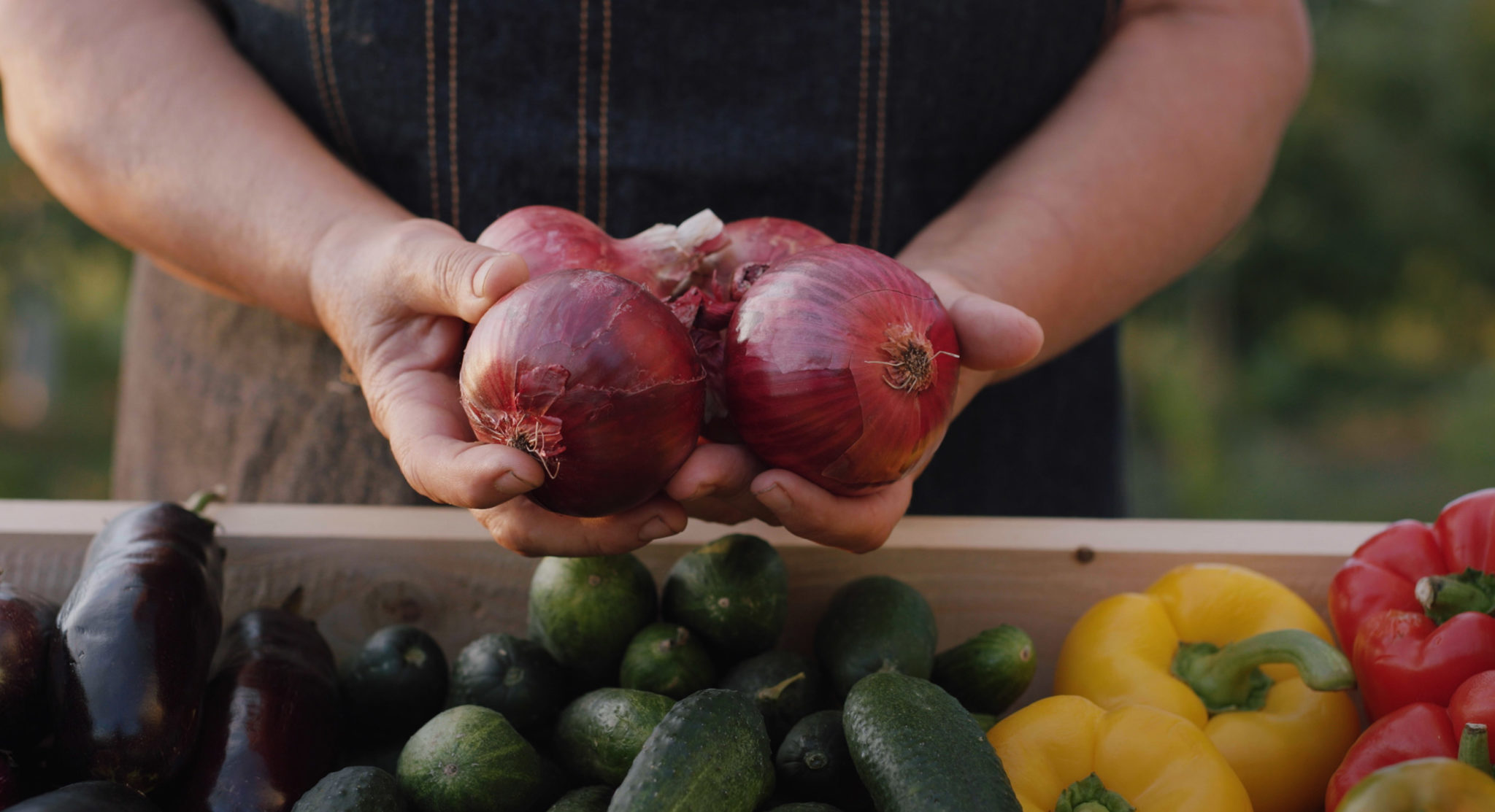Our campsites
with ecological commitments
Our ecological values are strong. They are the foundation of the Cottage Parks concept.
Values are great, but concrete action on a daily basis is even better! That’s why, at Cottage Parks, our ecological values and convictions are taken into account and questioned in all our reflections, actions and developments.
Our ecological actions for our campsites
Every year, millions of holiday-makers travel to different parts of the world in search of a change of scenery, rest, fun, reunion, adventure…
Every visitor, both during their stay and beforehand, has an ecological impact on the area they visit: in terms of the resources consumed by a large overpopulation over a short period of time, the pollution linked to transport, the waste produced, the weakening of ecosystems…
So talking about green tourism is a contradiction in terms. However, through their actions and choices, tourism stakeholders and holidaymakers have the power to act and change things. It is essential to study the concrete effects of this massive population shift in regions whose resources and biodiversity are often already fragile, in order to put in place the best possible practices to reduce its impact. This is known as sustainable tourism: tourism that is more respectful of the environment and has less ecological impact.
All Cottage Parks campsites adapt to their geographical location, their size, their human and financial resources, their clientele… and carry out concrete ecological projects and actions with the aim of adapting to holidaymaker demand while preserving the local environment.

Rethink your campsite to offer comfort in nature
Cottage Parks campsites are committed to welcoming all types of clientele and providing concrete solutions for preserving resources. Here are a few examples of concrete actions taken at our eco-chic campsites:
Accommodation
- Choose mobile homes and lodgings produced in France, benefiting from more virtuous construction and insulation rules.
- Choose virtuous optional equipment such as :
– toilets with a wash-hand basin integrated into the flush tank
– a key-operated contactor to switch off all lights and electrical appliances in the absence of guests (as in hotels with the room card).
– choosing electricity rather than gas for hot water production and cooking. Renewable energy accounts for 8% of electricity consumption. What’s more, our teams no longer have to handle heavy gas cylinders.
- Choose the greenest household appliances possible, with a high rating.
- Design spacious terraces planted with suitable species, preferably melliferous plants, to help protect bees.
Water management
- Use individual rather than shared sanitary facilities to reduce water wastage. Indeed, holidaymakers are more vigilant when it comes to private facilities.
- Installation of a mechanism to recover grey water (handwashing) for black water (toilet flushing) to reduce water consumption. It seems crazy to continue using potable water for toilet flushing in France.
- Create shared vegetable gardens wherever drip irrigation is installed. New plantings require watering for the first few years. To optimize the drip system as much as possible, vegetables are planted for the enjoyment of all holidaymakers. 100% free picking, guaranteed pesticide-free.
Energy management
- Install solar panels for hot water and electricity production
- Raising awareness among holidaymakers and staff of the need to use air conditioning wisely
- Limit lighting consumption: solar, LED, timers, motion and twilight detectors…
Green spaces
- 0 phyto is mandatory. We don’t use products that are hazardous to your health in the midst of our plantations and vegetables. We prefer to let nature take its course and plant melliferous species, not always weeding, mowing late, leaving everything that exists at the campsite, in the campsite: from shredded branches for dry compost, to trunks lining driveways. Each element is home to biodiversity.

The best way to reduce waste is not to create it!
- Eliminate the use of disposable under-sheets in furnished accommodation, in favour of washable protectors. That’s 25% less operating waste.
- Install collection bins for batteries, light bulbs…
- Implement a strategy for the collection of cigarette butts.
- Encourage waste sorting as much as possible by setting up a complete waste sorting centre on the campsite, raising awareness among young and old alike through activities and the provision of the equipment needed for proper sorting…
- Eliminate or limit the use of plastic and cardboard for takeaways in the restaurant, for example, by encouraging holidaymakers to bring their own containers.
- Use recycled everyday objects for activities offered to children at the campsite: toilet rolls, milk cartons, corks, etc.
- Solidarity grocery: unused or unopened products that holidaymakers don’t want to take with them when they leave can be dropped off at reception for reuse. Avoid waste!
Purchasing policy
- Second-hand as a priority. Encourage second-hand and upcycling whenever possible. Some of the furniture is second-hand. Certain elements and materials are recycled or diverted from their original use.
- Prefer washable to disposable whenever possible.
- Ask external service providers to limit packaging as much as possible: for the laundry, for example, deliveries on carts rather than in individual plastic bags.
- Give preference to local players whenever possible
Transport
- Provide employees with alternative means of transport and a fleet of electric vehicles: car, golfette, mobilette, bicycle, etc.
- Install charging stations for electric vehicles on the campsite itself, to actively participate in the development of this mode of transport.
- Encourage the use of local public transport by providing information on services, timetables, etc.
- Set up partnerships with local bicycle rental companies to promote this mode of travel during the holidays.
- Encourage staff to carpool, walk or cycle to work each day.

Whether on holiday or at work, inclusion is essential
- Equip premises on one level, with equipment adapted for people with motor disabilities. The same applies to common areas for entertainment, swimming and play.
- Offer accessible cottages for people with reduced mobility, with the same comfort and benefits as other accommodation in the same category.
- Propose partnerships with local players for “soft” activities
- Promote the Terroir by providing holidaymakers with information on must-see places, the most suitable activities and the best dishes to try.
- Encourage sharing with participatory libraries.
- Support local associations committed to promoting local heritage and preserving flora and fauna…
Communication
- Train staff in eco-responsible approaches and resource management, so that they can be the best ambassadors for our customers.
- Install explanatory and educational panels to help visitors discover the local fauna and flora.
- Studying customer feedback via opinions and satisfaction questionnaires to continue improving our actions and approaches.
- Obtain labels such as LPO or Green Key to publicize our commitments and maintain our high standards.
Our partners
- Restaurant, grocery store and bar managers are invited to introduce vegetarian menus, offer organic, local and homemade products, limit single-use plastic crockery and combat food waste.

